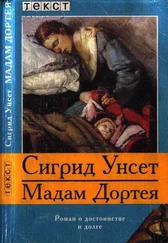They do not start with Genesis. The first thing Cole learns is the Lord’s Prayer. Some of it sounds familiar to him, though he knows he has never learned it before, he has never learned any prayer before. PW shows him where in the Bible the Lord’s Prayer is from.
“You see, it didn’t make sense for people to go on praying in the same old ways as before. Because Jesus’ coming changed everything. What he was bringing to the world was something completely new, so there had to be a new way of praying, too. And Jesus told his disciples not to pray like hypocrites, making a big deal out of it, making sure everyone sees them doing it and using a lot of show-offy words. Pray like this, he said, and he taught them these very words you’re learning now, over two thousand years later. Short and simple, yet somehow encompassing all: thankfulness, forgiveness, a plea for help in avoiding sin, and praise of God.”
Cole learns the prayer easily, and then PW teaches him another prayer, or psalm, rather, from another part of the Bible. Again, Cole recognizes some of the words. The valley of the shadow of death. Fear no evil. He has come across those words many times before, in movies and comics and video games, but without ever knowing where they were from.
Cole is amazed that anyone could do what PW does: open that ginormous book to exactly whatever passage he is looking for. And he is amazed that anyone would spend hours every day studying something he already knows so well.
“Ah,” said PW. “Your mistake there is in thinking the Bible is just another—albeit ginormous—book. Even those of us who’ve read and reread every word, we don’t ever put the Bible away. Why? Because God inspired Scripture precisely so he and us could always be in communication with each other. The Bible may be ancient, but it ain’t ‘history.’ It’s today’s news, every day. And we call the story of Jesus the Gospel, or Evangel, because those words mean ‘good news.’”
They do not have set hours for their Bible study—they have to work around PW’s busy schedule—but often they sit down together for a half-hour or so after supper. Tracy never joins them, but she reads the Bible on her own every day, and every Wednesday night she meets with her women’s Bible group.
Cole also has a Bible study group, which is only for boys and girls his age and meets on Saturday mornings. There is Bible study for children of every age, even those who haven’t yet learned to read, and several different groups for adults. Besides one for only women, there is one for only men. There is one for couples and one for singles, and there are other groups, called workshops, for people in some particular kind of trouble, such as drinking too much or post-traumatic stress from the panflu. Most of the groups meet at the church, but some, like the women’s group, meet at different persons’ homes. Whenever it’s Tracy’s turn to host, she bakes a red velvet cake and, for the dieters, Weight Watchers’ brownies.
When Cole hears about a workshop to help married people stay together, he thinks about his parents. He wonders, if they hadn’t died . . .
But it is becoming harder and harder for Cole to remember his parents clearly. Partly because of his illness, which burned away or distorted so much of his memory. (He understands better now what his father meant when he explained what Alzheimer’s disease had done to Cole’s grandfather.) Partly because his life today is so different from his life before. He has a new home, he lives in a new town—still in southern Indiana but east of Little Leap. Called Salvation City, though not a city, not like Chicago, and not even as big as Little Leap.
And, for the first time, Cole has a church. The Church of Salvation City, which Cole figured was named after the town, but in fact it was the other way around. As the story goes, the church had been founded in 1995. It was for the millennium five years later that the residents voted to change the town’s name from whatever it was (Cole can never recall) to Salvation City, too. Not every Salvation Citian belongs to the church, though even some who do not might come hear Pastor Wyatt preach at one of the three worship services offered on Sunday. Some people go to the Baptist church in the next town, and some don’t go to any church at all. Cole has little to do with those who don’t go to church, but when he sees them, downtown, say, or at the mall, he can’t tell any difference about them. Many greet Pastor Wyatt as warmly as any member of his flock. There are times when PW will approach a person in public, whether it’s someone he knows or not, and say, “Are you ready?” or “Have you thought about the Ten Commandments today?” And if the answer is no and the person gives him a chance, he’ll explain what horrible danger the person is in and how they can be saved. There are some who’ve been approached by PW so often already that when they see him they try to avoid him. Mr. Hix, who owns the hardware store, always grins broadly at PW but stops him before he can even open his mouth: “Not today, brother, I got work to do.”
Most things Cole remembers about the near past seem to have happened much longer ago—years and years ago—and to have less and less to do with him as the days go by. He does not always feel that he belongs in Salvation City—at least, not the way he thinks everyone else belongs—but he has no desire to leave, either. And anyway, where would he go? Back to the orphanage?
But there are moments when he is struck by a sense of loss so keen, it’s like an ax splitting him down the middle. The agony of seeing his parents become more and more ghostly. He has dreamed of them, standing side by side and waving to him from across some kind of empty stadium. Their waves are strikingly different: his father’s arm almost straight, making slow, sweeping arcs, as if he were guiding a kite; his mother’s hand close to her body and moving rapidly back and forth, like someone trying to rub out a stain. Then, although it’s indoors, there is smoke, or fog. Closing in, making it harder and harder to see, denser and denser until it’s impossible to tell if his parents are still waving, or if they’re even still there. A dream turned throat-clogging nightmare.
“It might help,” the woman called Eden had told him, “if you talked to them. You know, imagine your mom or dad is right there with you and you’re having a chat. A good time to do this might be at night, right before you go to sleep.”
And that night he had tried, but it had felt too strange. He couldn’t pretend like that—it was not his way. And then he dreamed that he was indeed trying to talk with his father. But his father was speaking the language of the dead. He kept getting madder and madder at Cole for not understanding him. Finally, he punched Cole in the face. In real life his father had never hit him, but the dream punch came as no surprise. To Cole it seemed woeful but natural, even inevitable. Deserved. He’d half woken up, and when he drifted off again he dreamed that his parents had shrunk to the size of gerbils. He carried them around with him in a Tupperware bowl. He fed them jelly beans and nuts.
At first glance anybody—not just the kids in Bible group—would have found the group leader scary. One of his eyes is dead and lies buried under a patch of purple scar tissue. He has some fierce tattoos—snakeheads, skulls—and his head is shaved like a skinhead’s. A silver stud through his right earlobe reminds Cole of a bullet.
Everyone knows Mason Boyle’s story because he has told it during the part of Sunday worship when members of the congregation are invited to testify. They know about the fight in the bar where he lost his eye to “this other punk” wielding a broken bottle, and how that was even worse luck than it sounded. As a child Mason had been afflicted with lazy eye, and the vision in that eye had always been blurred and weak. The eye he lost in the fight was his other eye, the one with 20/20 vision.
Читать дальше













